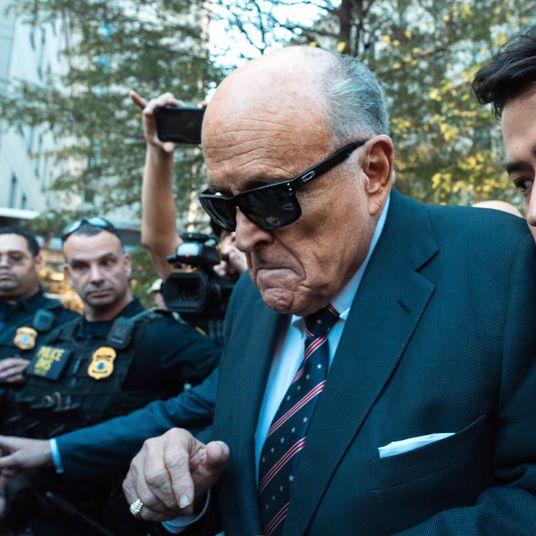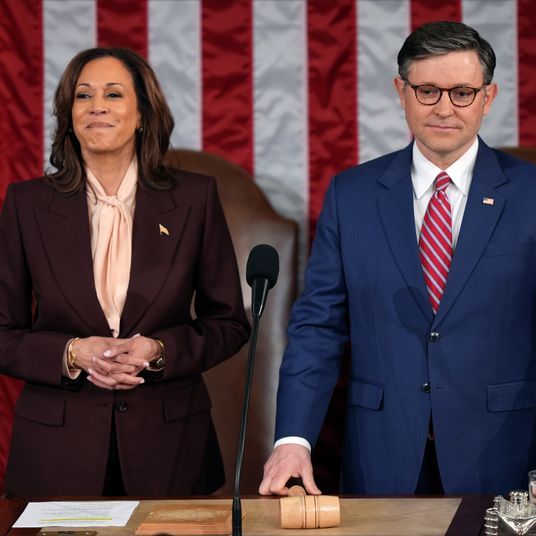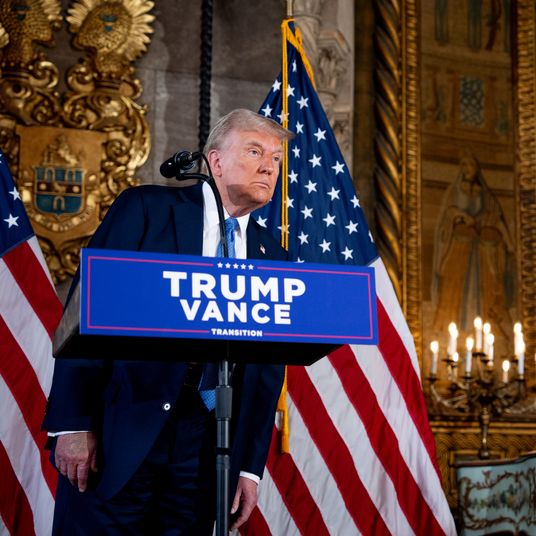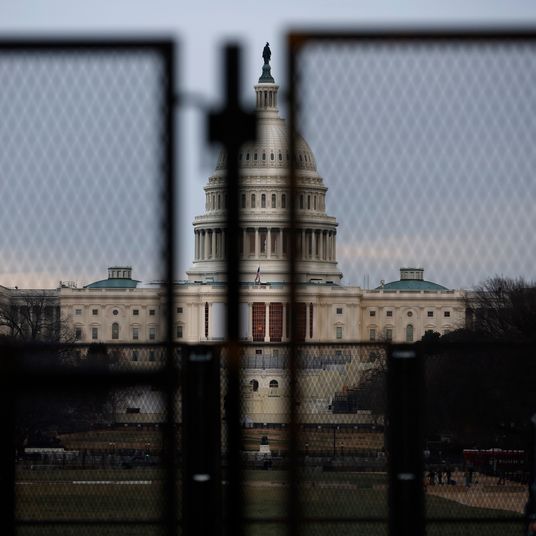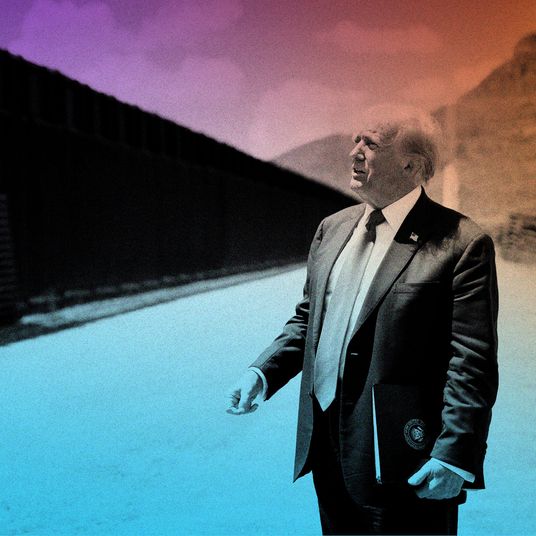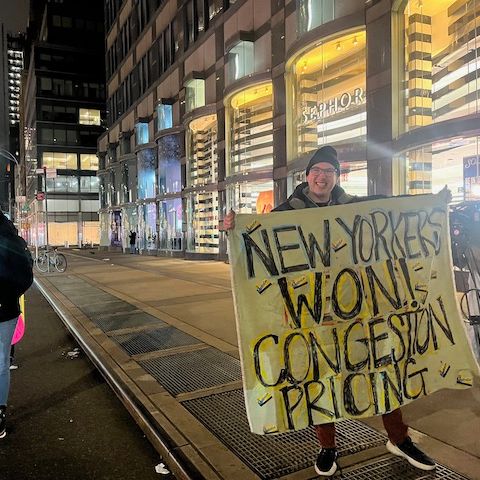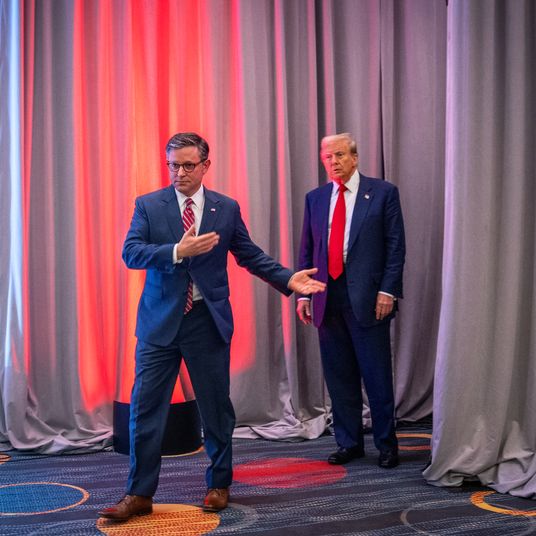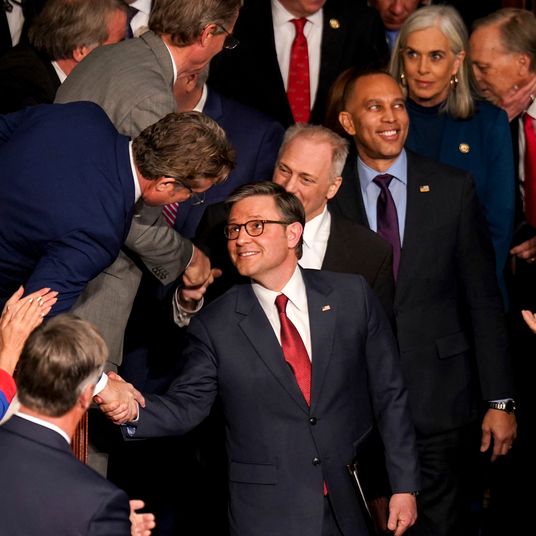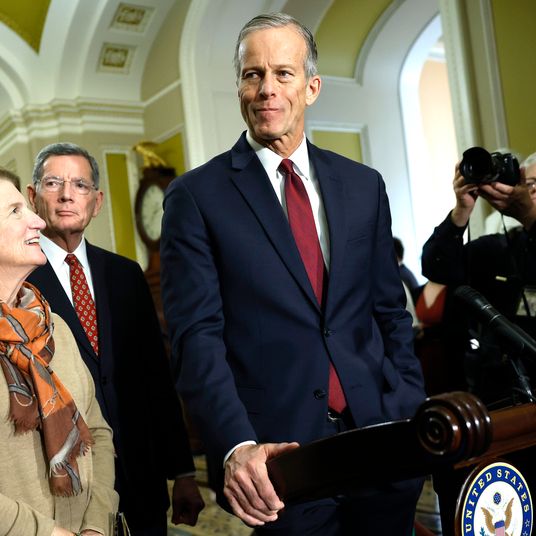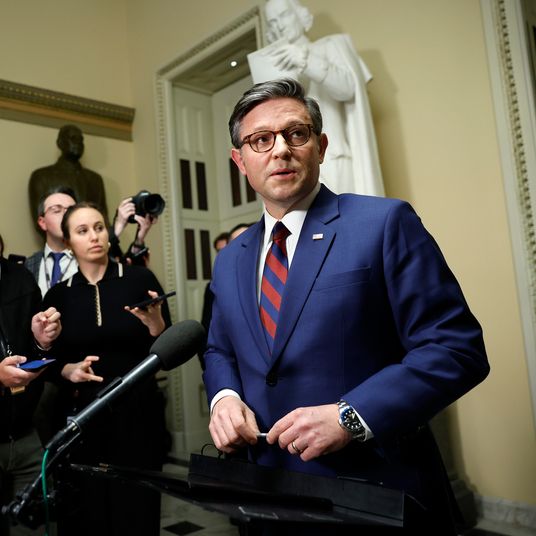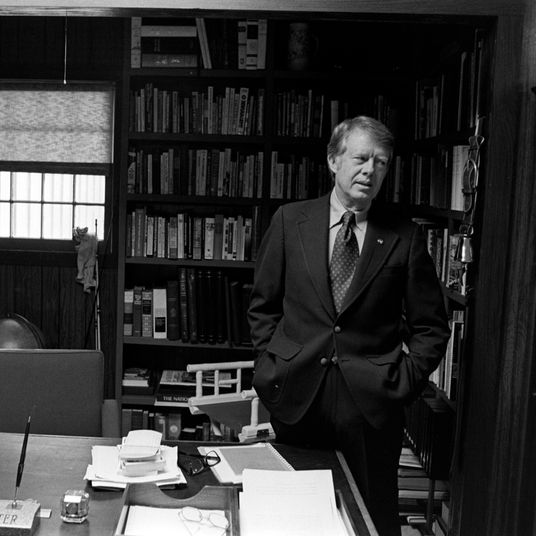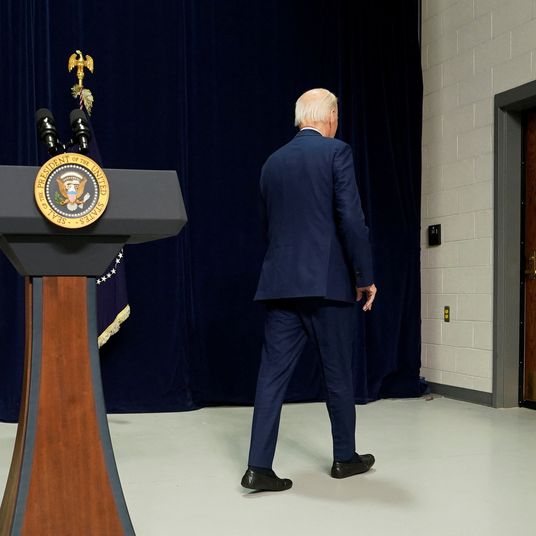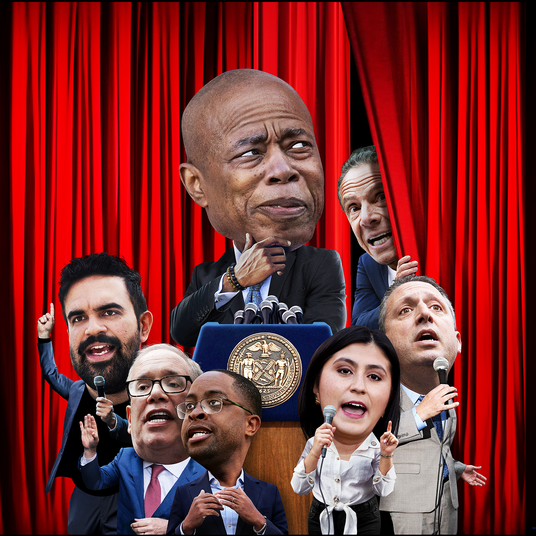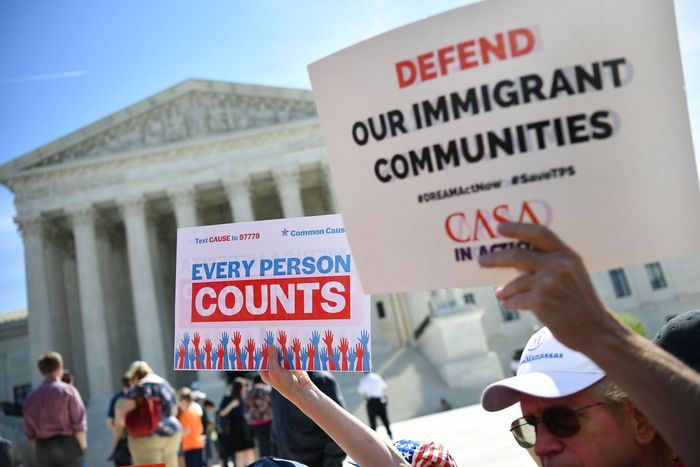
Normally, Supreme Court–watchers are reticent about predicting decisions from oral arguments, particularly in complicated cases that are expected to divide the Court. But it seems that just about everyone who listened to today’s arguments in Department of Commerce v. New York, the case involving the Trump administration’s efforts to place a citizenship question in the 2020 Census, came away with a clear impression.
Howe often writes for the authoritative SCOTUSblog, and isn’t one to jump to conclusions.
Perhaps the best-known Supreme Court commentator is NPR’s Nina Totenberg. She expressed no major doubts either:
Add the New York Times’ Adam Liptak to the chorus:
The first analyses beyond Twitter reached the same conclusion, like this one from the Los Angeles Times’ David Savage:
In a case with deep implications for California, Supreme Court justices on Tuesday appeared ready to uphold the Trump administration’s attempt to add a citizenship question to the 2020 census.
The justices were sharply split along ideological lines, with the court’s conservatives clearly on the side of deferring to the administration.
The Court has been asked to assess both statutory and constitutional challenges (brought by a variety of states, cities, and civil-rights groups) to the Commerce Department’s decision to bring back a general citizenship question that hasn’t been used since 1950. Three district courts (in California, Maryland, and New York) ruled that Commerce Secretary Wilbur Ross’s rationale and procedures for this step violated the Administrative Procedures Act and the Census Act. (A California district court ruled in favor of a parallel challenge based on the argument that the administration’s approach violated a constitutional requirement for an exact “enumeration” of the population via the Census, and SCOTUS agreed to review that decision as well.)
At the administration’s request, SCOTUS took up this case on an expedited basis without the usual Court of Appeals review because of a June deadline for preparation of 2020 Census questions.
The administration’s main argument against claims that its decision to include a citizenship question is “arbitrary and capricious” (violating the APA) and fails to use the best available techniques for actually measuring the population (violating the Census Act) is that it needs citizenship information in order to enforce compliance with the Voting Right Act. Aside from the risibility of the idea that Team Trump is interested in doing anything to the VRA other than gutting it or repealing it, there’s no indication that Ross mentioned this rationale in making his decision.
The VRA argument appears to have been tacked on later by Justice Department litigators preparing for judicial review. Indeed, as Liptak notes, the record shows a rationale far from VRA:
Documents disclosed in the case showed that Mr. Ross had discussed the citizenship issue early in his tenure with Stephen K. Bannon, the former White House chief strategist and an architect of the Trump administration’s tough policies against immigrants, and that Mr. Ross had met at Mr. Bannon’s direction with Kris Kobach, the former Kansas secretary of state and a vehement opponent of unlawful immigration.
But the administration’s even more fundamental effort is to convince SCOTUS that it has broad authority to prepare the Census as it sees fit, as Amy Howe explained in her preview of the case:
[T]he lawsuit should not be in court [the government claims] because the Trump administration’s decision to reinstate the citizenship question is not the kind of decision that a court can review. Instead, the government explains, the Constitution gives Congress “virtually unlimited” discretion to carry out the census, and Congress has delegated that same kind of broad discretion to the Secretary of Commerce.
It is deference to the Executive branch, an emerging motif of the Roberts Court in the Trump era, that Court-watchers seem to be picking up on. Both of Trump’s SCOTUS appointees, Neil Gorsuch and Brett Kavanaugh (who with Chief Justice Roberts and Justices Clarence Thomas and Samuel Alito form the conservative bloc on the high court), treated citizenship inquiries as unremarkable in their questions during the oral arguments.
If the decision goes the way it appears to be going, the consequences could be massive. The administration’s own estimates show that as many as 6.5 million people — many of them recent immigrants fearful of arrest and/or deportation if they become visible — won’t answer the Census at all if there is a citizenship question. Since federal funding formulas typically depend on Census figures, states with serious undercounts will get screwed to the tune of many billions of dollars. Congressional and state legislative reapportionment and redistricting are also based on Census figures; California could lose congressional seats and electoral votes, and areas with sizable immigrant populations within a variety of states could lose clout in Congress and in state legislatures.
Because of the timing, a SCOTUS rubber stamp in this scenario would be definitive. So even if Trump loses in 2020, the legacy of this action would live on for another decade, until the next Census. Consider it a nasty little time bomb from Donald J. Trump, and a further indication how important partisan control of SCOTUS appointments have become.








